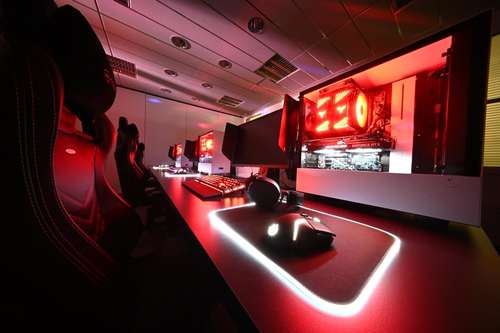Ubisoft's latest business maneuver has stirred a whirlwind of conversations in the corridors of its offices. Rumors of a new subsidiary formation are now fueling anxiety among employees, who worry that the consolidation of assets might be a precursor to layoffs. It’s a situation that feels both familiar and unsettling in today’s volatile tech and gaming industry.
There’s a sense of uncertainty hanging in the air, with staff members quietly questioning what these changes mean for their future. Some compare it to the unexpected plot twists in an assassin's creed game—just when you think you’ve figured it out, a new dynamic emerges that throws everything into disarray. This isn’t just about restructuring; it’s about what happens to the people who make Ubisoft, assassin's creed, and even initiatives like xdefiant and Ubisoft Connect the household names they are today.
New Subsidiary Formation and Strategic Moves
The decision to spin off a new subsidiary at Ubisoft has not come out of the blue. In recent months, the company has been looking at ways to streamline operations and focus on core assets, ranging from flagship franchises like assassin creed mirage to exploratory projects that reflect the innovative spirit found in rockstar games video games. Many insiders believe that the move is a strategic repositioning to better face upcoming industry challenges.
Ubisoft’s restructuring strategy may well be an attempt to modernize and remain competitive, much like a game update that tweaks gameplay mechanics in response to player feedback. While leadership paints a picture of opportunity and growth, there is a contrasting internal narrative that mixes cautious optimism with palpable trepidation. Some employees feel as if they’re caught in the middle of a plot twist that might change the ending of their careers.
This development brings to mind several recent strategic shifts by other industry giants. It isn’t unusual for large companies to undergo structural transformations, but the difference here is the sheer scale and how directly it affects an individual employee’s livelihood. The conversation now revolves around how this subsidiary will operate independently and what role it might play in shaping Ubisoft's overall creative vision.
The restructuring, much like beta testing a new game feature, leaves one wondering: will the new subsidiary help unlock greater potential or will it inadvertently set the stage for widespread job cuts? This question is one that continues to rise in the minds of the Ubisoft employees.
Employee Reactions and Rising Concerns
Inside the company, there is a mix of cautious excitement and deep-seated worry. The conversations over lunch breaks and after-hours meetings often detail concerns about job security and the fear of being phased out in the new organizational model. Many employees, seasoned veterans in the gaming industry, feel that a shift in company structure may inadvertently jeopardize the stability they’ve worked hard to secure.
For those who have been with Ubisoft through thick and thin, the news comes as a double-edged sword. On one hand, the new subsidiary could streamline decision-making and foster innovation, akin to a well-balanced update in assassin creed mirage that revitalizes a popular franchise. On the other hand, this consolidation has its risks. Just as in any game where power-ups sometimes come with hidden drawbacks, the possibility of layoffs looms large.
The sentiment among many is reflective of a broader industry trend—transformative changes often involve casualties. While frontline management emphasizes that no decisions have been finalized and attempts to reassure the employee base, the uncertainty is palpable. Some even wonder if the consolidation might be a way to reduce costs, potentially at the expense of loyal employees. The anxiety is real and infectious, and it has sparked debates on internal forums on how best to safeguard one’s role in the upcoming changes.
Many compare the current state of things to a beta version of a new game: promising in theory but fraught with unforeseen glitches. The risk of losing a cherished job in a well-respected company feels like pressing a button without knowing whether it will trigger an amazing feature or crash the system entirely.
Implications for Ubisoft's Future and Game Titles
This restructuring isn’t just affecting personnel—it could have far-reaching implications for Ubisoft's game portfolio. With major titles such as assassin's creed and its spin-offs like assassin creed mirage continuing to be pillars of the company’s success, any instability could ripple through the production pipeline. The potential for internal layoffs means that key projects might face delays or even shifts in creative direction.
Creative projects such as xdefiant and Ubisoft Connect rely heavily on the sweat and dedication of passionate employees. Imagine playing your favorite rockstar games video games and suddenly facing a scenario where the developers are scrambling to reassign roles or even let go of team members. The effect on morale and productivity could be significant. It reminds us that behind the dazzling graphics and innovative gameplay are teams of people whose futures aren’t immune to corporate reshuffling.
It’s also a wake-up call for the vibrant Ubisoft community that has grown around its storied franchises. The uncertainty might temporarily dampen the creative spirit, but history in the gaming world tells us that challenges often pave the way for fresh beginnings, innovation, and restructuring that ultimately lead to more dynamic projects. It’s a time of significant transformation—a crossroads where tough choices might lead to renewed focus on quality and game development.
Employees are now actively engaging with these changes, sharing personal anecdotes and insights about what it means to work in an evolving industry. They compare internal experiences to the unpredictable nature of game development. The trade-offs make one wonder if the sacrifices now might result in a stronger, more agile Ubisoft in the future.
Looking Ahead: Navigating Uncertainty
As Ubisoft moves forward with the creation of its new subsidiary, the path ahead remains shrouded in both promise and ambiguity. For many, the coming months will be about preparing for change, adapting to new operational paradigms, and hoping that the transformation leads to greater flexibility and opportunity. The internal mood is one of cautious pragmatism, with employees keeping a close watch on every development.
It’s hard not to feel a personal connection to these events—this isn’t just a corporate reshuffle, it’s a story about people navigating uncertain times. Discussions often revolve around whether the adjustments in corporate structure will lead to more efficient decision-making similar to the clear, linear narratives of assassin's creed or whether they might spiral into unforeseen complications that could mirror some of the unpredictable outcomes in game scenarios.
When you look at companies like Ubisoft, which have continuously pushed the envelope in storytelling and gameplay, it’s crystal clear that they’re willing to take risks. Yet, these risks sometimes come with a personal cost to dedicated employees. The key will be balancing innovation with stability—a challenge that any large organization faces but is made all the more complex in a creative industry.
At the end of the day, the true measure of Ubisoft's success will be its ability to hold onto the creative spirit of its employees while adapting to new business realities. The coming era may be fraught with challenges, but it’s also full of potential—if the company can navigate the storm without sacrificing the very people who make its game titles legendary.




